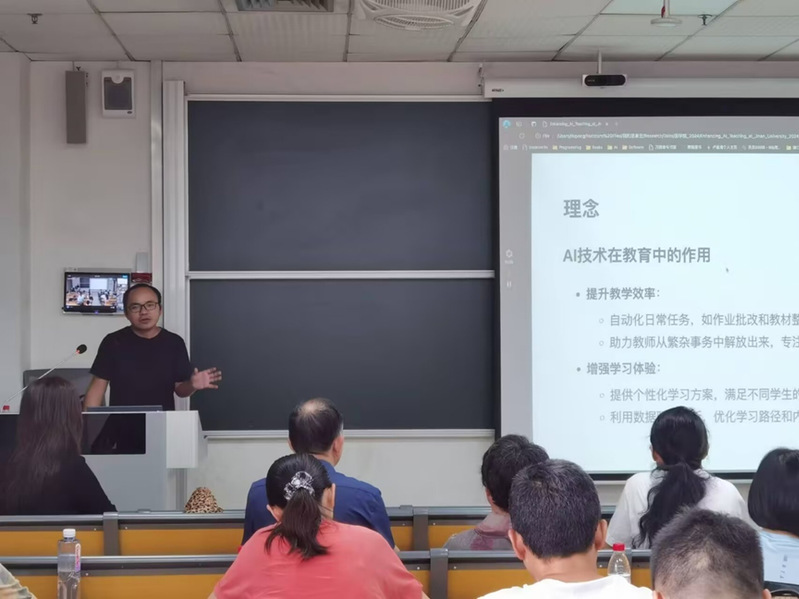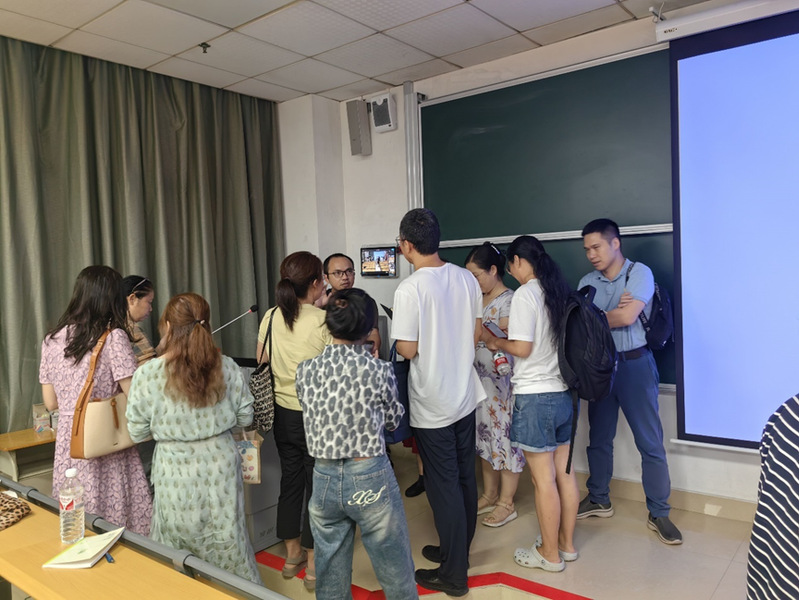- ABOUT JNU
- ADMISSION
-
ACADEMICS
- Schools and Colleges
-
Departments and Programs
- Arts College of
- Chinese Language and Culture College of
- Economics College of
- Electrical and Information Engineering College of
- Foreign Studies College of
- Information Science and Technology College of
- Environment School of
- Humanities School of
- International Business School
- International Studies School of
- Journalism and Communication College of
- Law School
- Liberal Arts College of
- Life Science and Technology College of
- Management School of
- Marxism School of
- Medicine School of
- Pharmacy College of
- Physical Education School of
- Science and Engineering College of
- Shenzhen Tourism College
- Research Institute
- Research Center
- Programs in English
- Majors
- Study Abroad
- Online Learning
- RESEARCH
- CAMPUS LIFE
- JOIN US
Empowering Classroom Teaching with 'Artificial Intelligence+'
Authors: Wang Wenke, Liu Junxiao, Hu Xiqian, Wang Wenke
Publisher: Teacher Development Center
Date: September 19, 2024
On September 12th, the Undergraduate Teacher Development Center held its 53rd session of Taste Teaching at Shipai Campus, focusing on the theme How to Empower Classroom Teaching with 'Artificial Intelligence+'. The event was hosted by Liu Peng, a distinguished educator from the School of Physics and Optoelectronic Engineering, who is also a second prize winner at the National College Teacher Teaching Innovation Competition. Zhang Mo, Director of the Teacher Development Center, facilitated the session, bringing together teachers from various disciplines to explore the integration of artificial intelligence in education.

(Liu was speaking )
Liu Peng's lecture tackled how artificial intelligence can address common challenges faced by university teachers in traditional teaching methods. By centering on concepts and practical operations, he provided valuable insights into the application of AI tools in enhancing teaching effectiveness. Liu detailed various scenarios where AI can function as a companion and assistant, demonstrating tools for data resource collection and intelligent Q&A systems.
One of the highlights of his presentation was a personalized learning platform he developed, which leverages AI to cater to individual student needs. This platform enables students to access course materials aligned with their learning habits and progress, thereby facilitating more effective knowledge acquisition. Moreover, AI systems can evaluate student performance in real time and offer timely feedback, which empowers students to overcome learning obstacles and enhances their independent learning capabilities.
Liu also highlighted the integration of AI in daily teaching tasks, such as converting traditional lesson plans, PowerPoints, and PDFs into interactive formats. This innovation aids students in autonomous learning while significantly reducing teachers' workloads, allowing them to focus more on student interaction and pedagogical advancements. Despite these benefits, Liu maintained that while AI can greatly assist educators, it is not infallible and has its limitations. He underscored the importance of teachers adopting a rigorous and responsible approach when employing AI tools in their teaching practices.
Following the lecture, there was a vibrant exchange between Liu Peng and attendees, with many teachers eager to delve deeper into the discussion and ask questions. The enthusiastic participation highlighted the commitment of faculty members to embrace new technologies in their teaching methodologies.

(Liu was exchanging with the attendees after the lecture)
To further advance the implementation of artificial intelligence+ and promote cross-disciplinary integration within the institution, the Teacher Development Center plans to enhance teachers' digital literacy and intelligent teaching capabilities. Future initiatives will include various forms of training activities such as taste teaching lectures, innovation workshops, and observation classes. Through these efforts, the center aims to continuously explore and promote effective practices that marry AI with teaching innovation, collectively contributing to the cultivation of high-quality talents.
NEWS
- About the University
- Quick Links
Copyright © 2016 Jinan University. All Rights Reserved.




